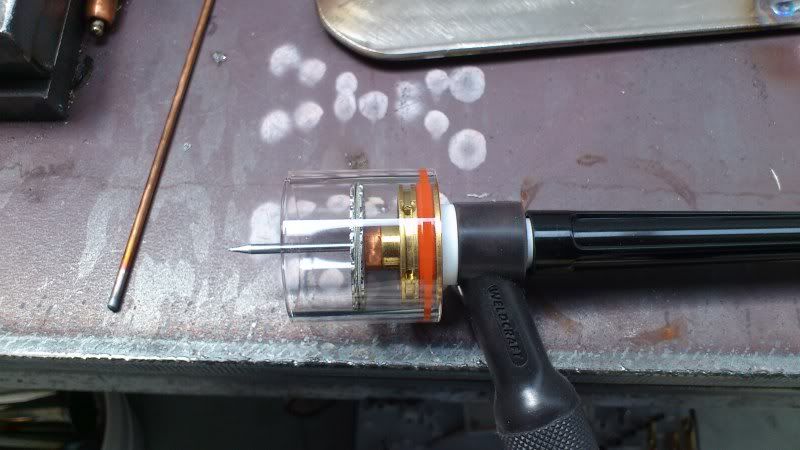So here is my setup, as you see i backpurged also the pipes with some good results and some disaster (maybe not enough gas although i had flow pretty enough)



Tack welding 2mm pipes and the ...results..









If you look carefully the whole weld is contaminated except the post flow area








Tried:
1mm, 1.6, 2, 2.4mm tungstens (Red,gray,blue)
4,5,6,7 size cup
12-50CFH
tungsten from 1-5mm out of the cup
many torch angles
many moving speeds
filler rod 308L 2mm-3mm
WELDING AMPS from 30A-80A (cold welds even had the same problem but much less)
As for practice i spent too much argon (pure) and many many fillers.
The only time i had a little luck was without filler rod and even then when i moved really fast.
Any help is welcome!









